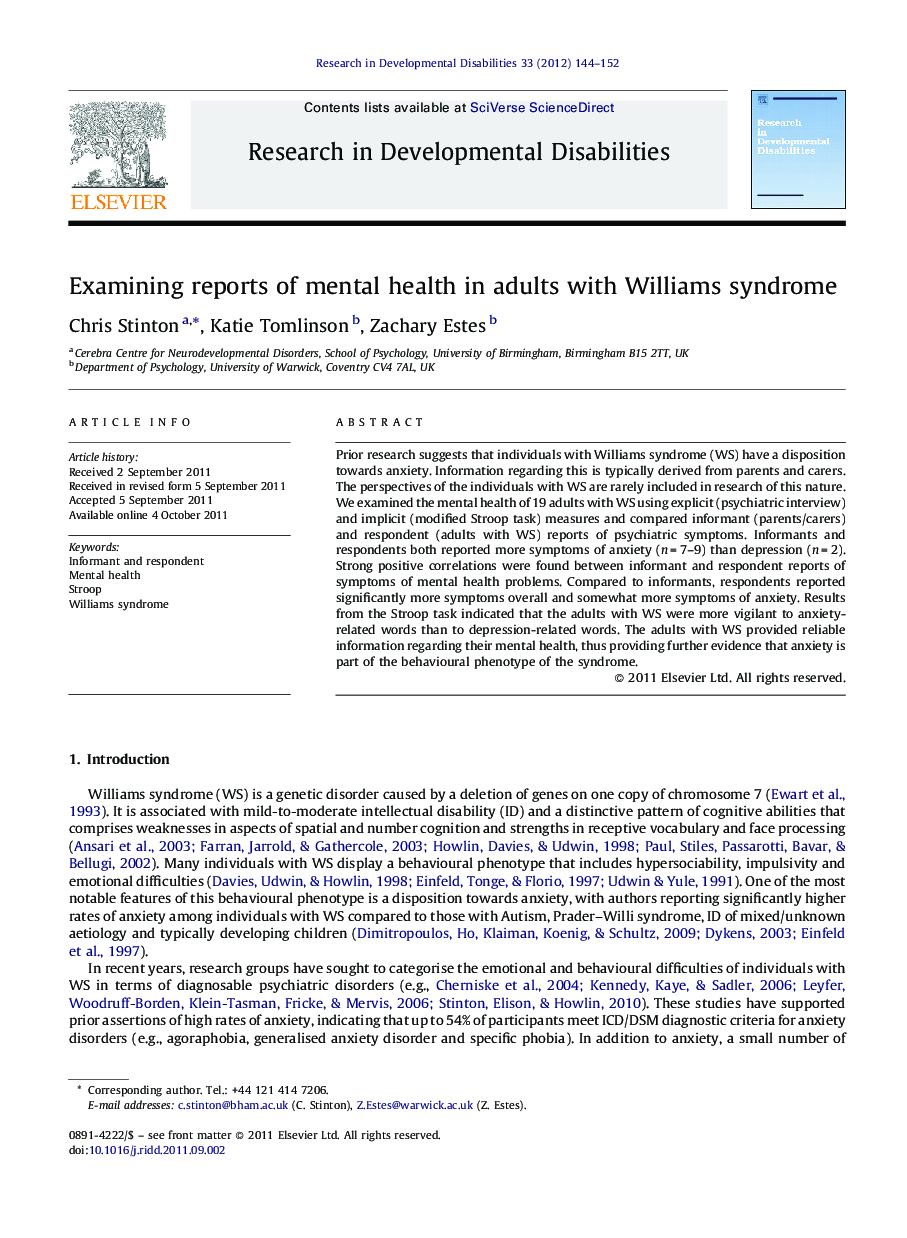| Article ID | Journal | Published Year | Pages | File Type |
|---|---|---|---|---|
| 371636 | Research in Developmental Disabilities | 2012 | 9 Pages |
Prior research suggests that individuals with Williams syndrome (WS) have a disposition towards anxiety. Information regarding this is typically derived from parents and carers. The perspectives of the individuals with WS are rarely included in research of this nature. We examined the mental health of 19 adults with WS using explicit (psychiatric interview) and implicit (modified Stroop task) measures and compared informant (parents/carers) and respondent (adults with WS) reports of psychiatric symptoms. Informants and respondents both reported more symptoms of anxiety (n = 7–9) than depression (n = 2). Strong positive correlations were found between informant and respondent reports of symptoms of mental health problems. Compared to informants, respondents reported significantly more symptoms overall and somewhat more symptoms of anxiety. Results from the Stroop task indicated that the adults with WS were more vigilant to anxiety-related words than to depression-related words. The adults with WS provided reliable information regarding their mental health, thus providing further evidence that anxiety is part of the behavioural phenotype of the syndrome.
► We examined mental health in adults with Williams syndrome. ► Explicit and implicit measures indicated a disposition towards anxiety. ► Comparisons of informant and respondent reports indicated excellent inter-rater agreement. ► Adults with Williams syndrome can provide reliable information about their psychological states.
